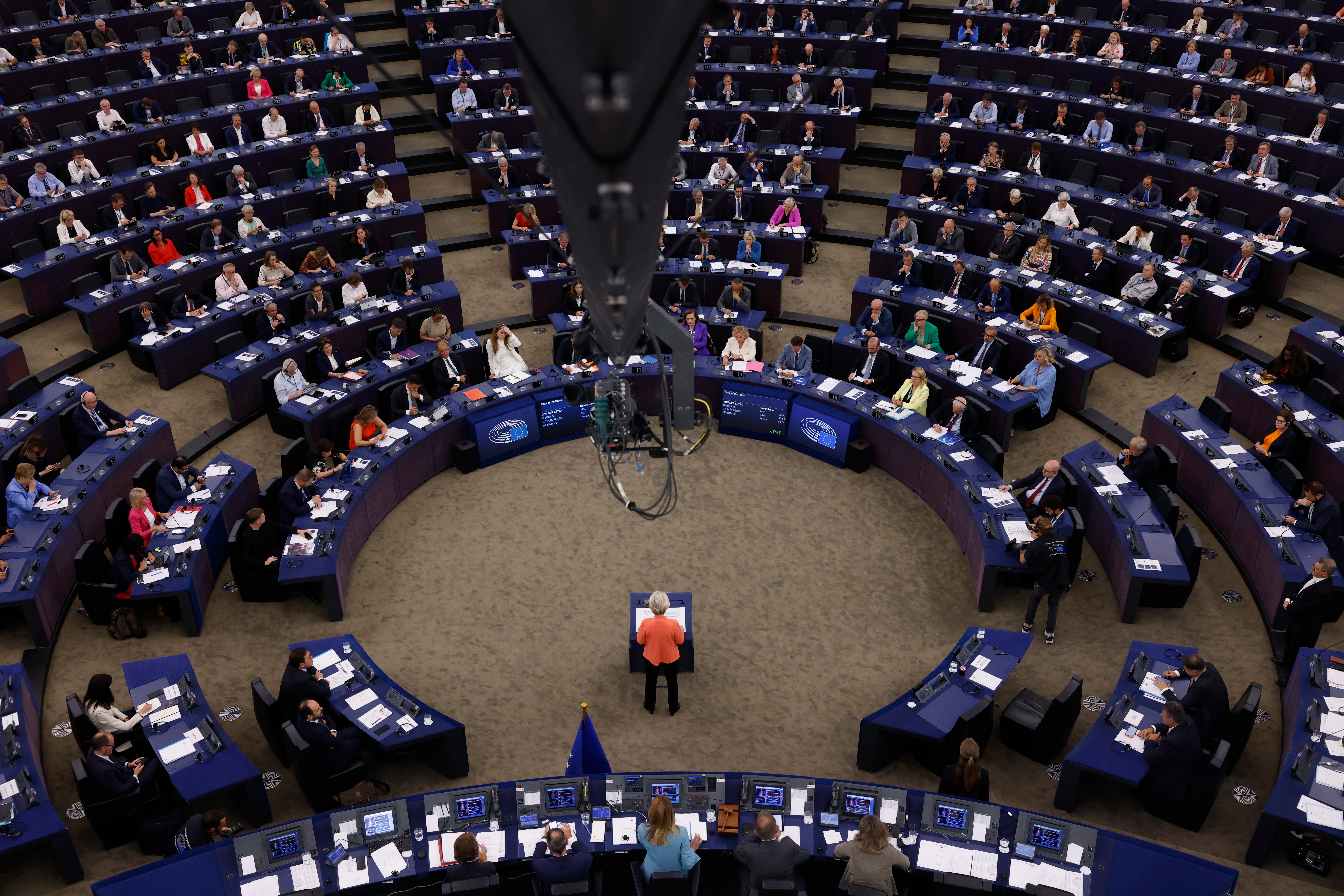EU boosts green fuels for aviation: 70% of fuels at EU airports will have to be sustainable by 2050
EU lawmakers have approved new rules requiring airlines to use more sustainable fuels across the bloc in a bid to help decarbonize the sector

Your support helps us to tell the story
From reproductive rights to climate change to Big Tech, The Independent is on the ground when the story is developing. Whether it's investigating the financials of Elon Musk's pro-Trump PAC or producing our latest documentary, 'The A Word', which shines a light on the American women fighting for reproductive rights, we know how important it is to parse out the facts from the messaging.
At such a critical moment in US history, we need reporters on the ground. Your donation allows us to keep sending journalists to speak to both sides of the story.
The Independent is trusted by Americans across the entire political spectrum. And unlike many other quality news outlets, we choose not to lock Americans out of our reporting and analysis with paywalls. We believe quality journalism should be available to everyone, paid for by those who can afford it.
Your support makes all the difference.EU lawmakers approved Wednesday new rules requiring airlines to use more sustainable fuels across the bloc in a bid to help decarbonize the sector.
Under the new standards adopted during a European Parliament plenary session in Strasbourg, France, 2% of jet fuel must be sustainable as of 2025, with this share increasing every five years to reach 70% by 2050.
The Parliament said that sustainable fuels will include “synthetic fuels, certain biofuels produced from agricultural or forestry residues, algae, bio-waste, used cooking oil or certain animal fats."
Recycled jet fuels produced from waste gases and waste plastic, as well as renewable hydrogen, will be considered green, while food crop-based fuels and fuels derived from palm and soy materials won't.
The aviation sector accounts for 13.9% of transportation emissions in the EU, making it the second biggest source of greenhouse gas emissions in the sector after road transport, the European Commission said. If global aviation were a country, it would rank in the top 10 emitters.
The legislation is part of the EU ’s “Fit for 55” package, which sets a goal of cutting emissions of the gases that cause global warming by at least 55% by 2030. The EU has also set a goal of reaching climate neutrality by 2050. It says it needs to cut transport emissions by 90% compared to 1990 levels to achieve this.
The new rules were adopted by 518 votes in favor, 97 votes against and eight abstentions. Once endorsed by EU member countries, they will enter into force as of January 2024.
The European Commission said earlier this year that the move is expected to reduce aircraft carbon emissions by two-thirds by 2050 compared to “a ‘no action’ scenario."
However, stocks of sustainable aviation fuel remain low. The EU Aviation Safety Agency says supply accounts for less than 0.05% of total EU aviation fuel use.
Aviation also faces competition from other sectors. On Sept. 5, the head of the German airline Lufthansa warned automakers to keep their hands off synthetic aviation fuels. Carsten Spohr said sustainable fuels represented the only workable way to decarbonize aviation, and there wouldn't be enough for the car industry as well.
___
Follow AP’s coverage of climate and environment at https://apnews.com/hub/climate-and-environment